#plvpw spoilers
Text
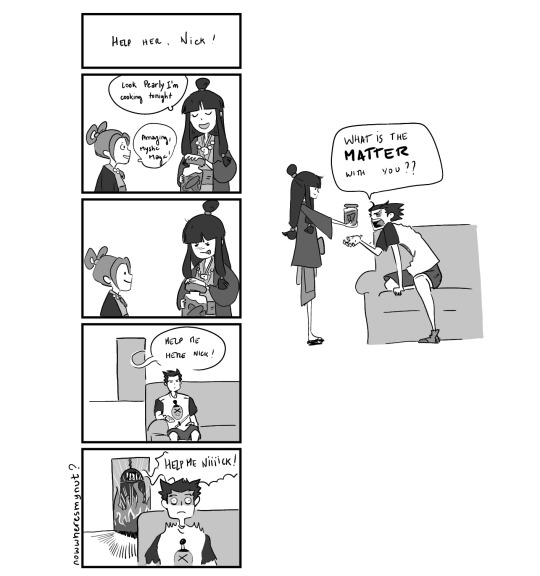
Plvpw trauma
#artwork#ace attorney#plvspwaa#plvspw#plvsaa#plvpw#plvpw spoilers#phoenix wright#maya fey#pearl fey#aa by me#comics by me#comic by me
286 notes
·
View notes
Text
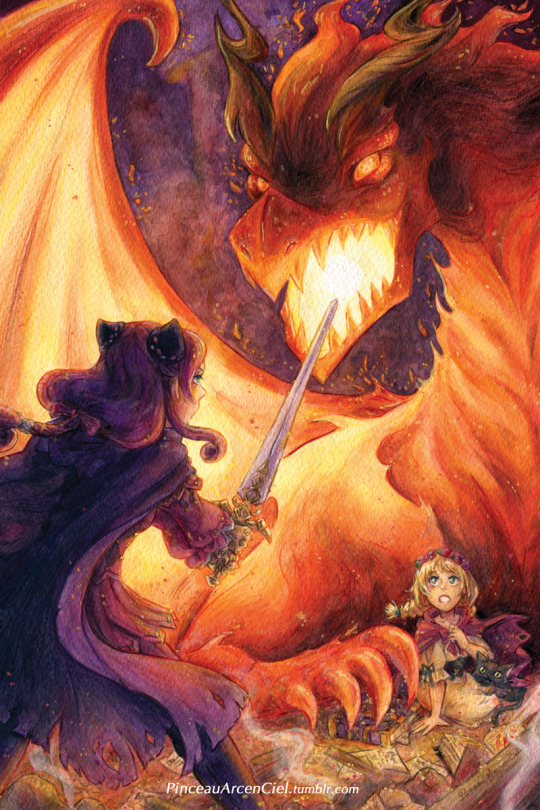
Full piece for the @onceuponaturnaboutzine~
Girls fighting the actual fire dragon ⚔️🔥
🌹 Leftover sales are open until February 12 ⚔️ and you still can get prints of this illustration (and many pretty others)!
※ Fanart: Professor Layton VS Phoenix Wright © Level 5, Capcom
#zine full piece#fanzine#fanart#professor layton vs phoenix wright#plvspw#plvpw spoilers#espella cantabella#darklaw#dragon#fire dragon#my art#artists on tumblr#traditional art#I'm proud of the light in this
107 notes
·
View notes
Text

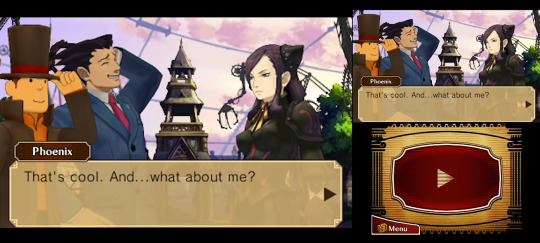
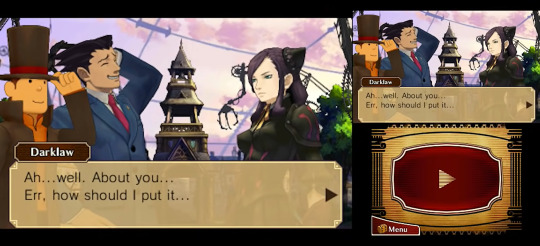
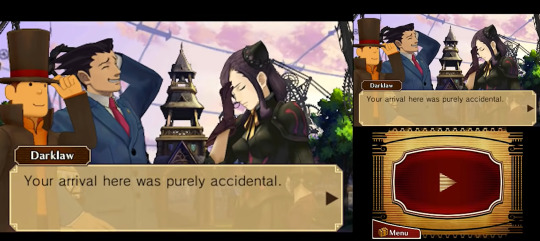
Apparently some Ace Attorney fans don’t like this Plot Beat in the PLVSAA game? Like, they feel that it disrespects Phoenix or puts in on a lower rung of importance compared to Layton? But I really disagree, I have some other issues with PLVSAA, but this moment? That’s a perfect Phoenix Wright moment that shows a real understanding of his character and his appeal.
Because Phoenix Wright always shoves his nose right into the center of stories where he was not supposed to be in. That’s what he’s been doing since the beginning.
Just look at the plot of the very first game! It’s all about Manfred von Karma and his Big Ass Weirdo Grudge against the whole Edgeworth family all two of them. In many ways, even if the AA narrative doesn’t typically use that framing - Manfred is kind of a Storyteller in a way, creating the Story of Miles Edgeworth’s tragedy and patricide.
And in that ‘Story’, Phoenix was a minor character at best. He was just an ordinary kid who knew Miles for a few months in fourth grade, He’s not tied in with the Family Drama, he doesn't have any obvious special talents or anything. From any outsider's perspective on Miles' whole life, there's no reason to think his 4th Grade Best Friend would by in any way Important for anything but Tragic Flasbacks. But Phoenix put himself into that narrative. For him, Miles’ kindness and friendship for these few months of childhood are just as important as anything in Manfred’s Story.
He got himself into law and shoved himself right into Miles Edgeworth’s story despite how ridiculous it all is. And so, even as Manfred disregarded him as just yet another unimportant interchangeable Defense Attorney to be crashed under his heel - didn’t even remember his name and face- Phoenix was still the one to defeat him. Even as Manfred left the courtroom still cursing Edgeworth’s name - Phoenix has made himself, by choice, into the Hero of that Story.
Miles and Maya would be Main Characters in anything related to the DL-6 mess whatever they’d like to or not, it’s just tied-up so heavily into their life and their traumas. Phoenix is the one who chose to be a Main Character in that Story.
And that’s something that kind of repeats with a lot of the narratives Phoenix gets into. Because he’s, like, the one AA character without a Dramatic Backstory outside of the Class Trial, Phoenix is usually either playing backup to the real main characters of the narrative - or once again, making himself the Main Character out of sheer determination and love and desire to help others and choice.
And doing it again in PLvsPW, establishing that he and Maya butted into both the Storyteller and Darklaw’d Stories just because they were both driven and curious and kind and wanted to help Espella so bad… that’s just perfect, especially for a story all about Stories that’s just perfect.
The thing that I keep thinking about is the few times AA has Stories that are definitively about Phoenix without him butting in or stumbling into someone else’s Story. ‘Justice for All’ is one, but it doesn’t really have a Grand Overarching Narrative. It’s more of a Phoenix Wright Character Study via a series of vignettes. The AA game that really has Phoenix at the center of a Story is ‘Apollo Justice: Ace Attorney’.
To continue the PLvsPW metaphor, AJAA is really the game between a bunch of rival Storytellers - PLvsPW had Arthur Vs. Evelyn, AJAA has Kristoph Vs Phoenix. Kristoph weaved a Story with Phoenix’s downfall at its center - and Phoenix waited until he had the chance to return the favor. I mean, I dunno, maybe my metaphor is a touch stretched but… Hobonick really is the closest thing to the Storyteller in the mainline AA games. The final AJAA case is almost literally him ‘designing’ a trial for his own purposes.

And the interesting thing is how controlling and railroading he is as a Storyteller figure. For someone who’s based his own entire damn life on defying the Stories and plans of others, he really does not let his own ‘Main Characters’ - least of all Apollo - that same sort of metanarrative agency.
#ace attorney#phoenix wright#phoenix wright ace attorney#phoenix wright: ace attorney#pwaa#gyakuten saiban#aa#professor layton vs phoenix wright#professor layton vs ace attorney#plvspw#plvsaa#plvpw#plvpw spoilers#naruhodo ryuichi#ryuichi naruhodo#phoenix ace attorney#aa phoenix wright#phoenix wright aa#aa1#apollo justice#ajaa#aj:aa#apollo justice ace attorney#apollo justice: ace attorney#aa4#gyakuten saiban 4#turnabout goodbyes#turnabout succession
158 notes
·
View notes
Text
I hear today's Flora Friday prompt is Crossover? Eheheheh.

Happy Flora Friday!
#professor layton#flora reinhold#espella cantabella#ace attorney#art#fanart#plvpw#professor layton vs phoenix wright#Flora Friday#Whiskers draws#maybe...#curious village spoilers#plvpw spoilers#implied but just in case I'll tag them#I hadn't started this one until earlier so I actually got to see the prompt before starting for once#I usually start before friday or too early in the day to see it
64 notes
·
View notes
Text
So for my birthday, one of my best friends got me this.
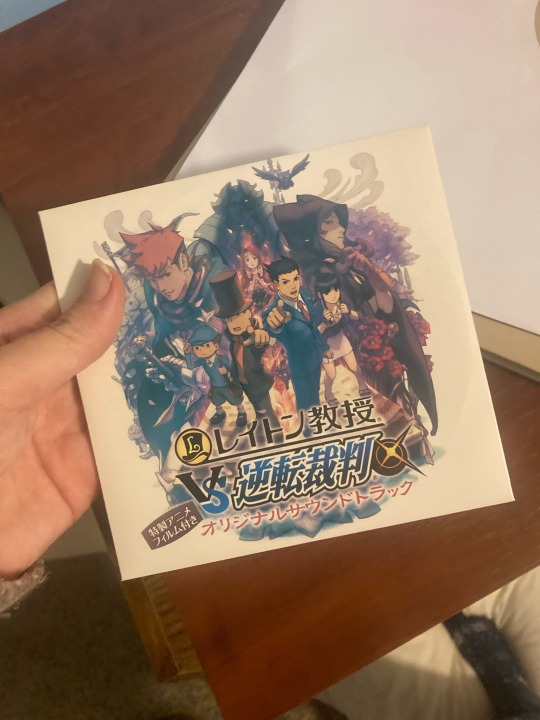
As I understand it, it was a pre-order bonus for the crossover game and had five tracks from the soundtrack and also came with a snippet of film from a cutscene that was made but then cut or something? My friend wasn’t very clear.
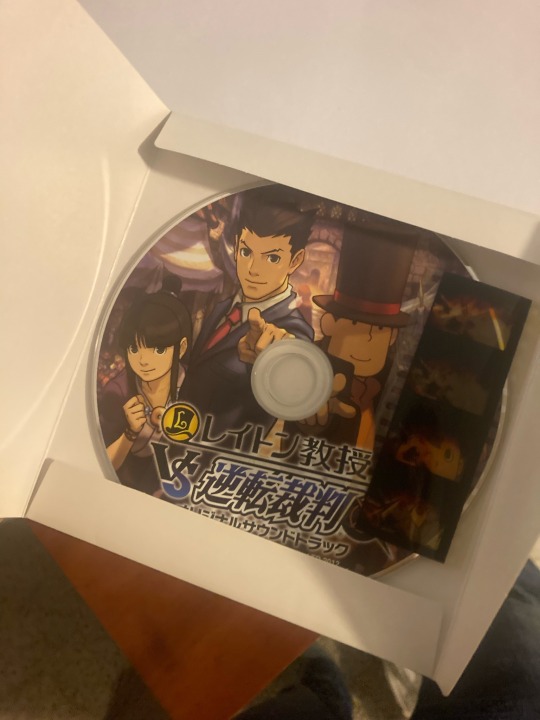
Here’s a better look at my snippet. Anyone have any ideas what it might have been of?
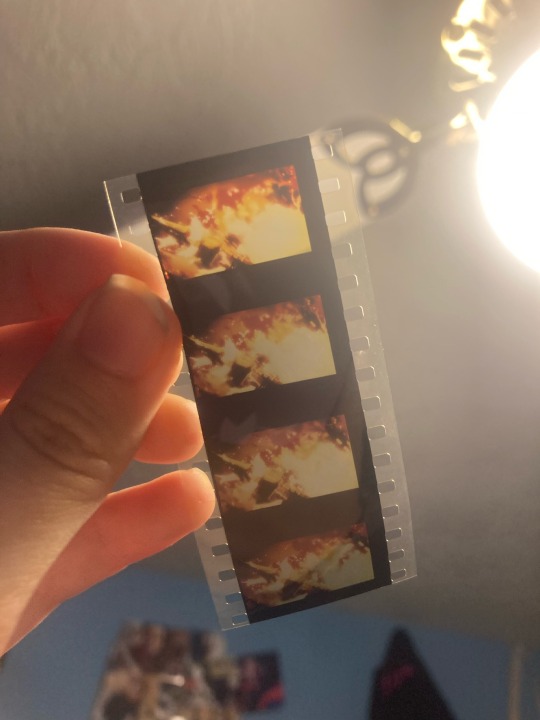
#professor layton vs phoenix wright#PLvPW spoilers#I mean probably not but just to be safe#and yes I have the most amazing friends in the world and no I do not deserve them#but they are still mine and you can’t have them#it looks kind of like fire? maybe the fire that destroyed the town the night of the festival?#but that cutscene wasn’t cut was itv#is this even cut or#there’s no way they make cutscenes for video games on film reels#c’mo#what the hell is this#queue takumi defense squad
41 notes
·
View notes
Text
Perler Witches' Court
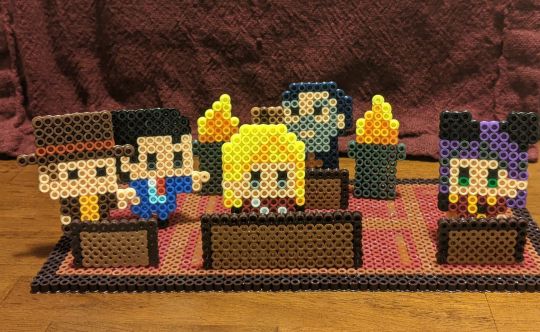
I had a bunch of beads left over after making an AA courtroom in Perler form, so I decided to make a Witches' Court version :)
(Beware implied PLvPW spoilers below!)


As with the previous post, the mainline AA characters were adapted from this Pixel art template by cronchy_croissant on Reddit, although the PL and crossover characters are my own designs. I'll post the templates I made in a follow-up post <3
#Ace Attorney#Professor Layton#PLvPW#Perler#Perler Beads#Crafts#PLvsPW#plvpw spoilers#Phoenix Wright#Espella Cantabella#Darklaw#Zacharias Barnham#Luke Triton#sC original#Misadventures in Perler Crafting#Misadventures#I also made Eve the cat but I'm realizing I forgot her in these photos :/
38 notes
·
View notes
Text
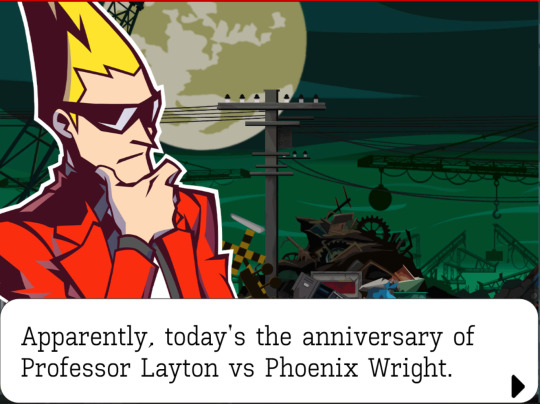
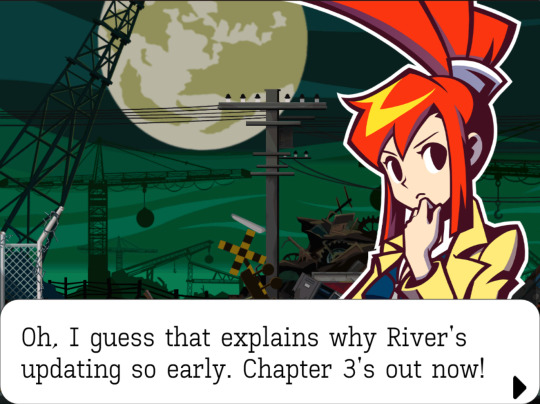
It's true -- today is in fact the eleventh anniversary of Professor Layton vs Phoenix Wright's release! In honor of the occasion, I decided to shape up and put out the next chapter of "Ghost Stories (and Other Forms of Magic)". You can read it here.
(Ghost Trick quote generator can be found here.)
#professor layton#ace attorney#plvspw#plvsaa#plvpw#plvspw spoilers#plvpw spoilers#ghost stories (and other forms of magic)#nanowrimo#fanfiction#my writing#surprise! yeah i surprised myself too. remember how I said this update was probably gonna take longer?#well...decided to use the nano region event last night to get my act together and rewrite the chapter like it needed to be#just in time for the anniversary!
17 notes
·
View notes
Text
To the Breaking Point: Suicide in Ace Attorney
A while ago I wrote a short version, and then a slightly longer version of this very post, after a discussion I had on Discord about the ending of Professor Layton vs Phoenix Wright and generally the handling of suicide in the Layton games as a whole. And while I do generally tend to compare Espella's suicide attempt to a certain Professor Layton character, that game came out after the crossover, and the influences on it weren't the same. Takumi had a heavy hand in the crossover, and I want to talk about today another major example of suicide in Ace Attorney, which I'm sure every AA fan is already aware of: Farewell, My Turnabout.
I've already spoiled Professor Layton vs Phoenix Wright, but additional spoilers for both AA2 and the crossover apply. Plus, content warning for in-depth discussions of suicidal thoughts & suicide attempts.
You might be asking at this point: River, what's the first part of that title about?
And the answer is simple: Edgeworth is to Adrian in Farewell as Layton is to Espella in the final chapter(s).
Espella, throughout Professor Layton vs Phoenix Wright, is experiencing a downward mental health spiral. She is first introduced to us as someone who is fleeing from great peril, and then when we lose her, she's reintroduced with some form of hypnosis. While hypnotized, she tells Phoenix and Maya that she isn't a witch -- her paranoia has managed to break through. Labyrinthia's state and philosophy is deeply ingrained in her, even in this induced mindset. She associates the court with the witch trials, and therefore with the prospect of death.
And then we get to meet the real Espella again, and defend her. At the end of the trial, it's revealed that she was framed by Kira, who believed she was the Great Witch, the ultimate enemy of Labyrinthia. This is important, because this is the source of Espella's guilt, and the true beginning of her spiral. She confesses to being the Great Witch in front of the court to free Kira. This initial action is a sacrifice rather than a suicide attempt. The set-up here, however, is Espella's belief that her life is worth less than Kira's. Less than any other life, as Espella's lack of self-worth continues into the next trial and throughout the game. She later attempts to trade her own life for the life of Jean in the ending of Golden Court, where Maya attempts to dissuade her. And finally...we have the last Witch Trial, where Espella finally faces the allegations that she is the Great Witch.
This is where Espella is pushed to her breaking point. The trial opens with her confession -- this is debunked by Phoenix saying that Darklaw forced her into saying the words, but Espella still holds a genuine belief that she was responsible for the Legendary Fire, even if she is not responsible for her father's "death", and the Legendary Fire is ultimately the event that the trial rests on. This is the root of Espella's guilt: the belief that she was responsible for the deaths of everyone back then.
Remember: Espella has very little self-esteem at this point, and it has been actively torn apart by the events of the game. She believes that dying will cause everyone to be at peace. This is not an easily shaken belief, and it is likely that Espella has held these thoughts only for the trials she witnessed to exacerbate her low self-esteem and enable her suicidal thoughts.
We'll be coming back to this shortly.
Now for Adrian. Adrian lost her mentor to suicide, someone she considered an anchor in this world. She pinned all her hopes onto Celeste, and attempted suicide after Celeste's own death. Even though she makes no attempts again afterwards, she's still very deeply mentally troubled, falling back on anger and clinging to life for revenge. But her history of mental health struggles is still something she feels sensitive about, and given the right push...she could easily fall off that edge into despair again.
The final case of any given Ace Attorney game tends to feature a substitution in the prosecution. Miles Edgeworth takes back the bench with his "Great Revival" in Farewell, and the position of Inquisitor for the final trial is turned over not once but twice, with Hershel Layton ultimately taking the spot.
Both of these characters have struggled in the past mentally. Edgeworth is coming back off of having left a note that is purposefully vague to read as a suicide note, saying that he "chooses death" after the events of the first Ace Attorney game. While he ultimately doesn't die, one possible interpretation is that he initially planned on going through with his note, but ultimately chose not to. This interpretation is supported by Edgeworth's shaky state throughout Rise from the Ashes -- we can see how he's fallen apart in the wake of Manfred von Karma's conviction for Gregory Edgeworth's murder, and the situation with Lana Skye and Damon Gant only served as another punch to his already shaky state.
Hershel Layton is someone who has faced a lot of losses in his personal life. These losses have pushed him into a depressive state (he was shown sleeping in his office with his hat still on in the chronologically first game), which has only started to heal since he met Luke. He has been shown to be prone to taking damage for others, self-sacrifical tendencies, and potentially some suicidal recklessness, though that last one is again up to interpretation.
Note how both of these prosecutors reflect the people that they're pushing. Edgeworth's prosecuting career only existed because of Manfred von Karma. Losing him pushed Edgeworth to a point where he felt the need to uproot his entire life. Layton's personal life has been riddled with loss, pushing him into thinking that he is the one at fault for all of it.
Both cases have a similar theme surrounding the ethics of the truth. Is it correct to lie to people? Is the truth ever worse than a lie? And Ace Attorney is a series that advocates for the truth above all else, so the conclusion drawn here is that the truth is the correct response here, and the ethical complications can be resolved in other ways. Edgeworth and Layton both go to great lengths to convince everyone that the truth should be exposed regardless of the cause, and end up coming across as a bit (or a lot, in Edgeworth's case) callous. Edgeworth does care about Maya, and he doesn't want Adrian to kill herself, but he still values the truth, and places more importance in that value. While he is willing to stall for Phoenix in order to gain time, he's not so willing to stall as to give up on his own case. Meanwhile, Layton clearly cares about Espella's health, and has spent much of the game dedicated to keeping her out of the flames, but ultimately, they end up at similar points.
Edgeworth pushes Adrian into admitting to her own suicide attempt. Layton pushes Espella into attempting suicide. We know that both of these characters have preexisting mental health issues. Espella may have ended up attempting suicide no matter what. However, it cannot be doubted that Espella and Adrian are reacting to the actions of Layton and Edgeworth.
In Farewell, My Turnabout, we see Edgeworth's actions as going too far. He pushed Adrian to her ultimate breaking point in an attempt to get the outcome he wanted most, and this is framed as a negative thing, despite the fact that Matt Engarde is extremely suspicious (though he has not officially confessed to us at this point). We even see Edgeworth's callousness in reference to his own struggles and how they parallel Adrian's when he says to her directly that if she chose death again he wouldn't mind. He is being cruel, and that is a purposeful decision to make him so after his come back.
However, even though Layton can be seen as a bit careless, he's framed as much more heroic than Edgeworth. He's come back, he's finally here, and he's going to help us find the truth. He even becomes the player character at a certain point, where when we present evidence it's him saying "Have a look!" instead of Phoenix's "Take that!" Espella's suicide attempt, then, is not treated with the gravity of "a girl who attempted to kill herself", but as a moment of redemption for Eve, who is ultimately the one responsible for the Legendary Fire -- as is revealed right before Espella jumps.
In both cases, the prosecutor has pushed the person on the stand in a way that shows very little regard for the health of said person in the end. If Eve hadn't been there, Espella would have killed herself. She would have died, and while Layton certainly didn't force her to jump and in fact would not advocate for her death as a solution to any of this, he would be responsible for pushing her to that breaking point that lead to her jumping. She already saw death as the only way out, and Layton's pressing on the events is what led to her deciding to be proactive. And...as we've already seen, Edgeworth cares less about Adrian than he does about the truth. In both of these cases, these are character flaws, but only in one case is this flaw actually faced by the narrative.
In both cases, and in Ace Attorney as a whole, the truth is treated as the ultimate goal. But while Farewell, My Turnabout takes a more nuanced approach to talking about the truth and its exposure, Professor Layton vs Phoenix Wright never questions whether the truth should be exposed. To Labyrinthia, there is never a question. The answer to "is an easy lie or a hard truth better" is a hard truth, as far as Ace Attorney's ethics go, but it is nonetheless a moral worth testing.
#ace attorney#plvspw#plvpw#plvpw spoilers#miles edgeworth#adrian andrews#hershel layton#espella cantabella#meta#cw suicide#tw suicide
9 notes
·
View notes
Text

ever play a video game and realize it's the story you've been waiting to find your whole life? yeah that was me with 999. anyways have this professor layton au because akane was put into the salad spinner of my claire thoughts
#professor layton#zero escape#plvspw#plvpw#arthur cantabella#phoenix wright#clive dove#maya fey#hershel layton#claire foley#inspector chelmey#sophia pl#newton belduke#r does an art#pl spoilers#plvpw spoilers#plvspw spoilers#unwound future spoilers#diabolical box spoilers#there's only really 999 spoilers as an If You Know You Know sorta thing.
14 notes
·
View notes
Text

Respite for the Weary
Rating: General Audiences
Archive Warning: Creator Chose Not To Use Archive Warnings
Category: Gen
Fandom: Layton Kyouju vs Gyakuten Saiban | Professor Layton vs. Phoenix Wright: Ace Attorney
Relationship: Luke Triton & Naruhodou Ryuuichi | Phoenix Wright
Characters: Luke Triton, Espella Cantabella, Naruhodou Ryuuichi | Phoenix Wright, Rouge (Layton vs. Wright)
Summary:
Luke, still affected by the loss of Professor Layton, has a difficult time falling asleep at Rouge's Tavern. He sneaks downstairs, and overhears Phoenix and Rouge talking about what happened to Maya. Phoenix's demeanor troubles Luke, and he wonders if it's possible to tell Mr. Wright that he completely understands what he's going through.
CWs in the opening notes, credits/shoutouts in the closing notes!! This was my fic for @labyrinthiazine! Fic preview is a little further back in my writing tag! Oh, and Labyrinthia Zine's leftovers are open until February 7th!!
Read the rest of Respite for the Weary on AO3!! 🔽
#nebulanna writes#professor layton vs phoenix wright#professor layton#phoenix wright: ace attorney#phoenix wright#ace attorney#plvspw#plvpw#plvpw spoilers#professor layton vs phoenix wright spoilers#plvspw spoilers#luke triton#espella cantabella#miss rouge#rouge plvspw#plvspw chapter 5#professor layton versus phoenix wright#fanfic writing#zine fic#enjoy!!
10 notes
·
View notes
Text
Pop quiz! Your daughter is traumatized after a horrible event. What do you do?
A. Send her to therapy.
B. Move to a place which doesn’t remind her of the horrible event.
C. Be sure to always be there for her.
D. Fake kill somebody else’s father figure 12 years after the accident when she doesn’t even remember it.
#plvspw spoilers#just finished the game and I did like it#but like#ace attorney#professor layton#espella cantabella#Arthur cantabella#professor layton vs phoenix wright#plvpw spoilers
29 notes
·
View notes
Text
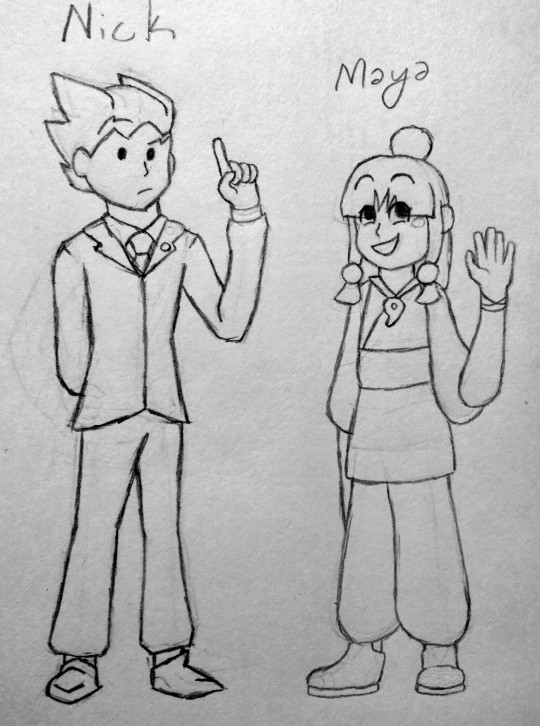
soooooo... i made an au. im calling it situationswap. um. here have the ramblings of a madman and feel free to ask me more?


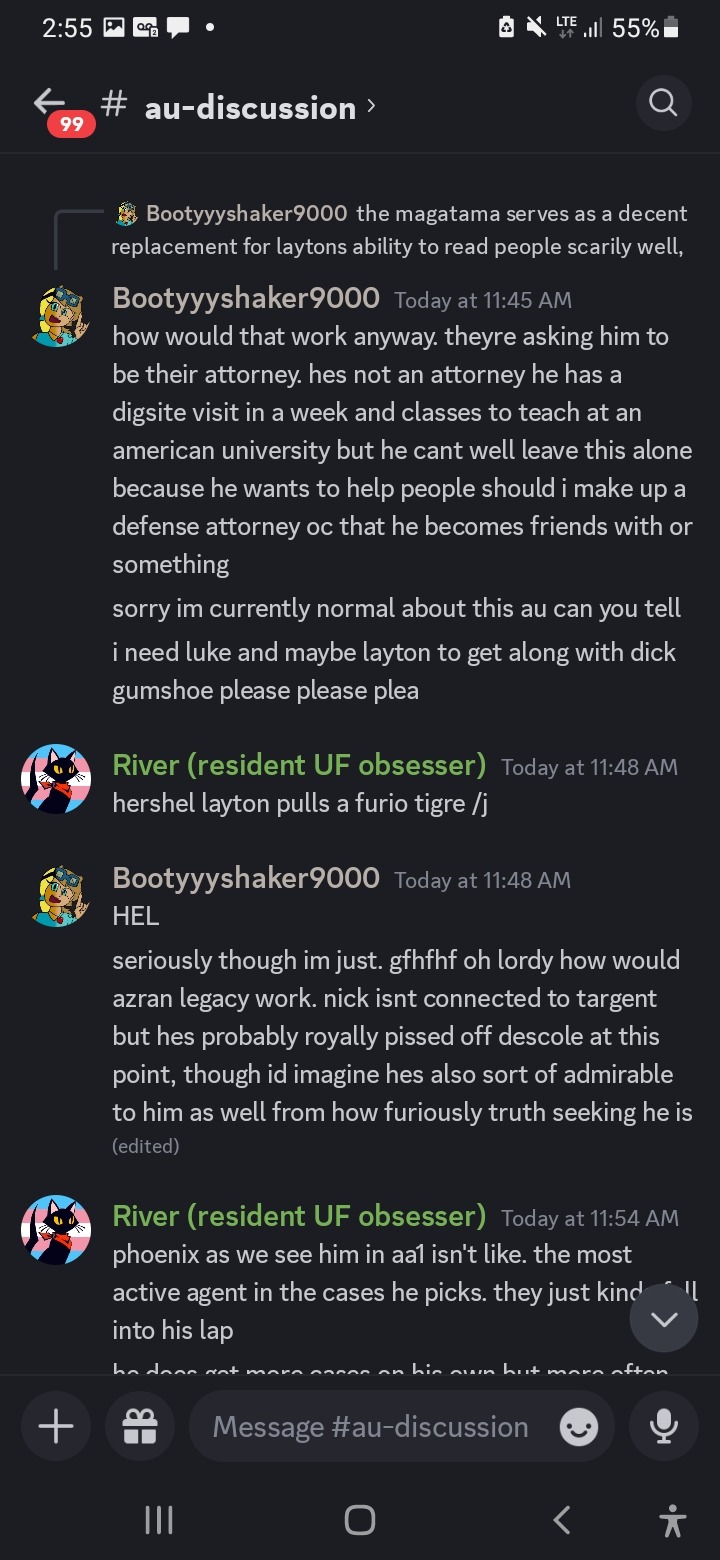
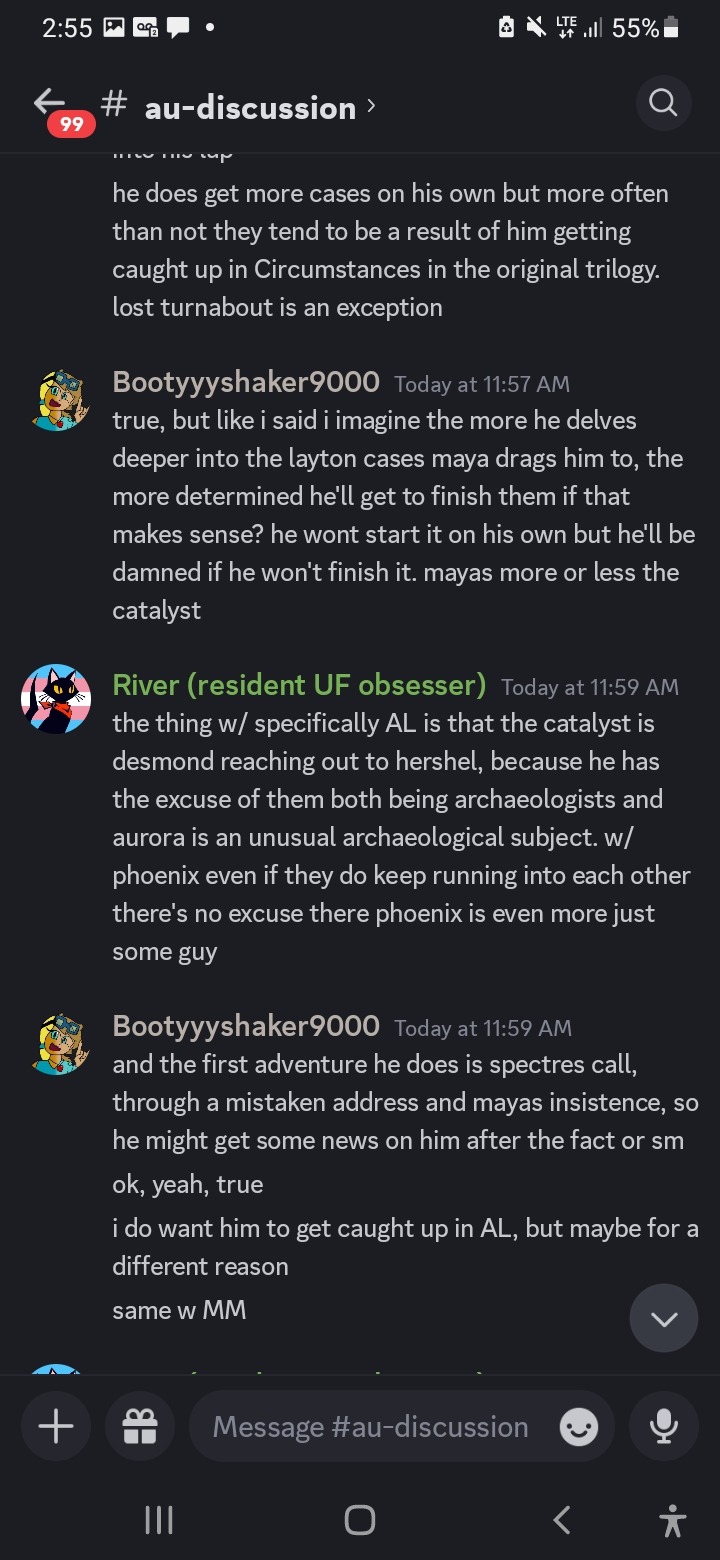


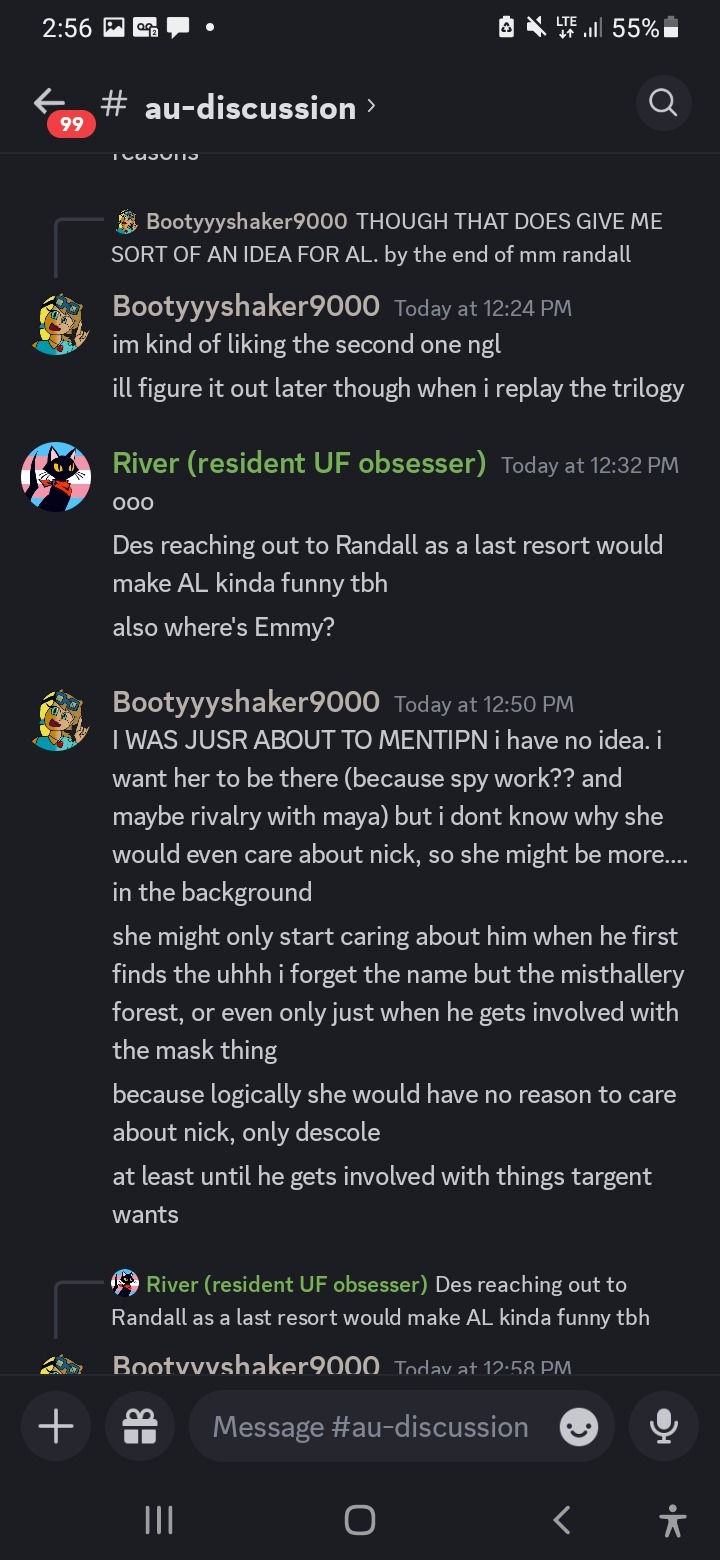

#before anyone mentions how little ive written down about laytons side i dont remember a lot of aa lore#so if someone could help with that id appreciate it#pl au#aa au#plvpw au#plvpw#plvspw#layton spoilers#professor layton#layton series#ace attorney#phoenix wright#maya fey#hershel layton#luke triton#roc save#rocket talk#read later dumbass (at self)#art#my art#plvpw situationswap au
29 notes
·
View notes
Text
"fuck the british government!" - age old Naruhodou family saying
#dgs#plvspw spoilers#dgs spoilers#phoenix plays plvpw#hey im going insane. this plot is soooooo ridiculous
5 notes
·
View notes
Text

<3
#This one's for you River! 💙#ace attorney#professor layton#professor layton vs phoenix wright#plvpw spoilers#plvpw#Art#fanart#pixel art#eve belduke#darklaw#espella cantabella#evespella#whiskers draws#I meant to have this finished way earlier but it. uh. took longer than expected on account of me having no idea what i'm doing#(also river i have a silly anecdote about finding reference images for this if you want it)
71 notes
·
View notes
Text
Layton and Luke in Labryinthia: We don’t belong here and it’s vital that we find a way to get back.
Phoenix and Maya in Labryinthia: haters gonna hate, hate, hate, hate, hate and the bakers gonna bake, bake, bake, bake, bake
#professor layton vs phoenix wright#professor Layton#Luke triton#maya fey#Phoenix wright#I was literally thinking to myself#it’s weird that I’m almost four hours into this crossover#and they haven’t met yet#and then they walked into the bakery#and it had the ‘welcome!’ bubble#and I was like#am I having a stroke#plvpw spoilers#queue takumi defense squad
60 notes
·
View notes
Text
How Much Dialogue Each Character has in PLvsPW
I made some graphs about the amount of dialogue each character has in Professor Layton vs Phoenix Wright, because I'm a graphs kind of lady :)
(Minor/oblique spoiler warning)

The color coding will make more sense when you see the 2nd graph, but it’s basically unique colors for major characters, and category-based colors for minor characters (witnesses and Flynch = blue, characters who give puzzles = orange)
I was curious what it’d look like if you grouped the word counts according to characters’ series of origin, so here’s that:

More details below the cut ~
Some notes about the 2nd graph:
“Puzzle characters” are characters who give you a puzzle (or only show up in the puzzle gameplay segments) and are not part of the trials
“Trial characters” are the witnesses and Flynch (although all of the dialogue they have outside of the trials still counts towards their total, fwiw)
The unlabeled part at the bottom of the PLvPW column is the Storyteller, with 5,200 words, and the one at the bottom of the PL column is Chelmey with 986 words (couldn’t get the labels to fit lol). Edgeworth has 50 words fwiw, which isn’t really enough to be visible (although he technically is represented on the graph, as a tiny line at the top of the AA column)
Also, in case it’s not obvious, the judges are grouped into the PLvsPW column because they’re not the same character as the AA judge. The English and Labyrinthian judges are also lumped together due to them being labelled the same in the data and there not really being a good way to separate them out with how the data is structured
Part of my inspiration for making the second graph was that PLvPW seemed like more of an Ace Attorney game than a Professor Layton game to me based on vibes, and I was curious whether the balance of dialogue would reflect that (with the caveat that the dialogue would naturally skew towards the AA characters since the trial gameplay is more dialogue heavy than the puzzle gameplay is). To be clear, I don’t mean that as a criticism of the game or anything—I enjoyed it a lot!—I just thought it leaned more heavily on the AA side compared to the PL side, and I was curious what that leaning might look like, numbers-wise
With that said, the overall dialogue word count totals end up being 99,256 for PLvsPW characters, 63,633 for AA characters, and 48,070 for the PL characters, a 47%/30%/23% split, respectively, although notably that's counting expy characters (like Flynch) towards PLvsPW
Some observations:
Layton and Luke have way more dialogue in PLvsPW than they do across the first couple PL games (Layton has ~19k and Luke has ~10k total words of dialogue across both Curious Village and Diabolical Box combined, vs ~29k and ~18k here). I don't have data readily available for any of the later games, so IDK how those would compare, though
The overall total character-based dialogue word count is 210,959 words, which is about the same as AA1 or AA2 (which have roughly ~210k words of dialogue) but less than AA3 or AAI1 (~260k words)
The vigilantes collectively have more dialogue than the Storyteller, which is just wild to me
Data source: I used the scripts that Jozerick posted to the Court Records forums, which pulled the text from the PLvPW ROM. I wrote a python script to process those scripts further to use like this, so there’s a chance I introduced some error with that, but the numbers should be pretty accurate.
Word counts: The data set DOES include dialogue from the animated cutscenes, but it does NOT include puzzle instructions/hints, any descriptions from the Court Record, or interjections that have a gif rather than normal text dialogue (“Objection!” etc.). It also doesn’t include the dialogue from the special episodes, since those weren't included in the data source I used.
#Ace Attorney#Professor Layton#PLvsPW#PLvPW#PLvsAA#Ace Attorney in Graphs#Graphs#Tableau#sC original#PLvPW spoilers#<- kind of? putting it to be safe#Normally I make these graphs using the wiki episode transcripts but those are sadly incomplete for this game#The main side effect of that is it really limits the ways that I can slice and dice the numbers#which makes me sadder than I'd like to admit#Also legit thought that I posted this months ago#oops
30 notes
·
View notes